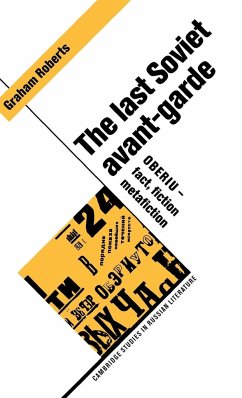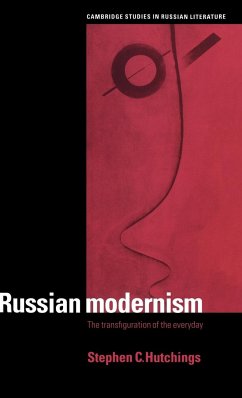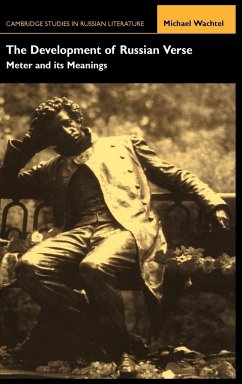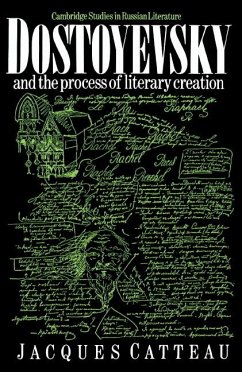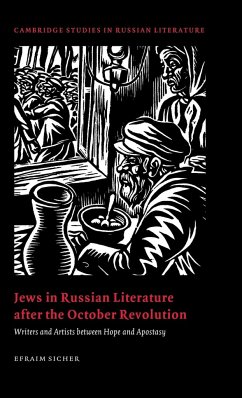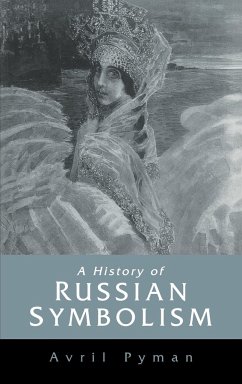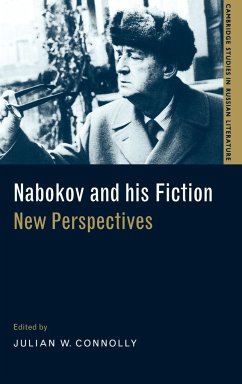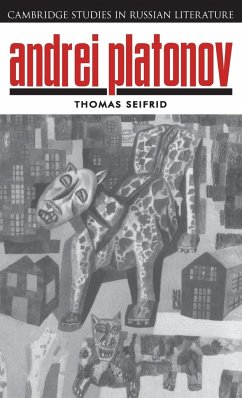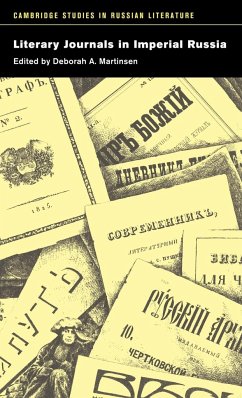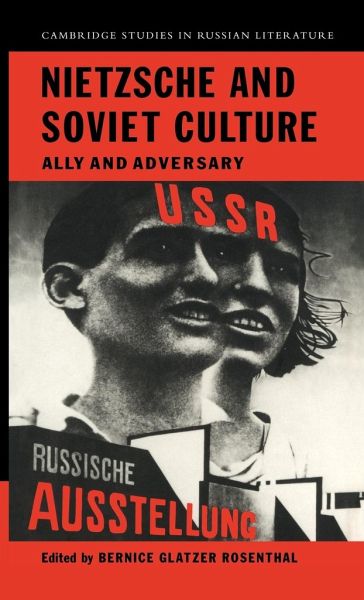
Nietzsche and Soviet Culture
Versandkostenfrei!
Versandfertig in 1-2 Wochen
136,99 €
inkl. MwSt.

PAYBACK Punkte
68 °P sammeln!
This pioneering study documents the extent and diversity of the impact of Nietzschean ideas on Soviet literature and culture. It shows for the first time how these ideas, unacknowledged and reworked, entered and shaped that culture and stimulated the imagination of both supporters and detractors of the régime. It addresses key peculiarities of the Soviet reception of Nietzsche - the role of the prerevolutionary interest in the occult, the way revolution figured as an allegorical subject, the intertwining of art and ideology in the obsession with creating a new culture, the continuing Russian ...
This pioneering study documents the extent and diversity of the impact of Nietzschean ideas on Soviet literature and culture. It shows for the first time how these ideas, unacknowledged and reworked, entered and shaped that culture and stimulated the imagination of both supporters and detractors of the régime. It addresses key peculiarities of the Soviet reception of Nietzsche - the role of the prerevolutionary interest in the occult, the way revolution figured as an allegorical subject, the intertwining of art and ideology in the obsession with creating a new culture, the continuing Russian interest in Nietzsche as a religious thinker, and the manner in which censorship affected the dynamic of reception and influence. The book offers a fresh perspective on the origins, formative years, and subsequent development of Soviet literature and culture, and raises new issues for research and discussion.
Table of contents:
Introduction Bernice Glatzer Rosenthal; Part I. Nietzsche and the Prerevolutionary Roots of Soviet Culture: 1. Nietzsche and the young Mayakovsky Bengt Jangfeldt; 2. Khlebnikov and Nietzsche: pieces of an incomplete mosaic Henryk Baran; 3. Apollonianism and Christian art: Nietzsche's influence on acmeism Elaine Rusinko; 4. Armchair anarchists and salon supermen: Russian occultists read Nietzsche Maria Carlson; Part II. Nietzsche and Soviet Initiatives in the Arts: 5. Nietzschean leaders and followers in Soviet mass theater, 1917-27 James von Geldern; 6. Revolution as an aesthetic phenomenon: Nietzschean motifs in the critical reception of Isaac Babel (1923-32) Gregory Freidin; 7. Nietzschean implications and superhuman aspirations in the architectural avant-garde Milka Bliznakov; 8. Nietzscheanism and the return of Pushkin in twentieth-century Russian culture Irina Paperno; Part III. Adaptions of Nietzsche in Soviet Ideology: 9. Nietzschean motifs in the Komsomol's vanguardism Isabel Tirado; 10. Nietzschean roots of Stalinist culture Mikhail Agursky; 11. Superman imagery in Soviet photography and photomontage Margarita Tupitsyn; Part IV: Nietzsche among Disaffected Writers and Thinkers: 12. From beyond the abyss: Nietzschean myth in Zamiatin's We and Pasternak's Doctor Zhivago Edith Clowes; 13. Mandelstam, Nietzsche and the conscious creation of history Clare Cavanagh; 14. Nietzsche's influence on the non-official culture of the 1930s Boris Groys; Part V. Nietzsche and the Nationalities: A Case Study: 15. Nietzsche's influence on Hebrew writers of the Russian empire Menahem Brinker.
This pioneering study documents the extent and diversity of the impact of Nietzschean ideas on Soviet literature and culture. It shows for the first time how these ideas, unacknowledged and reworked, entered and shaped that culture and stimulated the imagination of both supporters and detractors of the régime.
This pioneering study documents the extent and diversity of the impact of Nietzschean ideas on Soviet literature and culture.
Table of contents:
Introduction Bernice Glatzer Rosenthal; Part I. Nietzsche and the Prerevolutionary Roots of Soviet Culture: 1. Nietzsche and the young Mayakovsky Bengt Jangfeldt; 2. Khlebnikov and Nietzsche: pieces of an incomplete mosaic Henryk Baran; 3. Apollonianism and Christian art: Nietzsche's influence on acmeism Elaine Rusinko; 4. Armchair anarchists and salon supermen: Russian occultists read Nietzsche Maria Carlson; Part II. Nietzsche and Soviet Initiatives in the Arts: 5. Nietzschean leaders and followers in Soviet mass theater, 1917-27 James von Geldern; 6. Revolution as an aesthetic phenomenon: Nietzschean motifs in the critical reception of Isaac Babel (1923-32) Gregory Freidin; 7. Nietzschean implications and superhuman aspirations in the architectural avant-garde Milka Bliznakov; 8. Nietzscheanism and the return of Pushkin in twentieth-century Russian culture Irina Paperno; Part III. Adaptions of Nietzsche in Soviet Ideology: 9. Nietzschean motifs in the Komsomol's vanguardism Isabel Tirado; 10. Nietzschean roots of Stalinist culture Mikhail Agursky; 11. Superman imagery in Soviet photography and photomontage Margarita Tupitsyn; Part IV: Nietzsche among Disaffected Writers and Thinkers: 12. From beyond the abyss: Nietzschean myth in Zamiatin's We and Pasternak's Doctor Zhivago Edith Clowes; 13. Mandelstam, Nietzsche and the conscious creation of history Clare Cavanagh; 14. Nietzsche's influence on the non-official culture of the 1930s Boris Groys; Part V. Nietzsche and the Nationalities: A Case Study: 15. Nietzsche's influence on Hebrew writers of the Russian empire Menahem Brinker.
This pioneering study documents the extent and diversity of the impact of Nietzschean ideas on Soviet literature and culture. It shows for the first time how these ideas, unacknowledged and reworked, entered and shaped that culture and stimulated the imagination of both supporters and detractors of the régime.
This pioneering study documents the extent and diversity of the impact of Nietzschean ideas on Soviet literature and culture.





